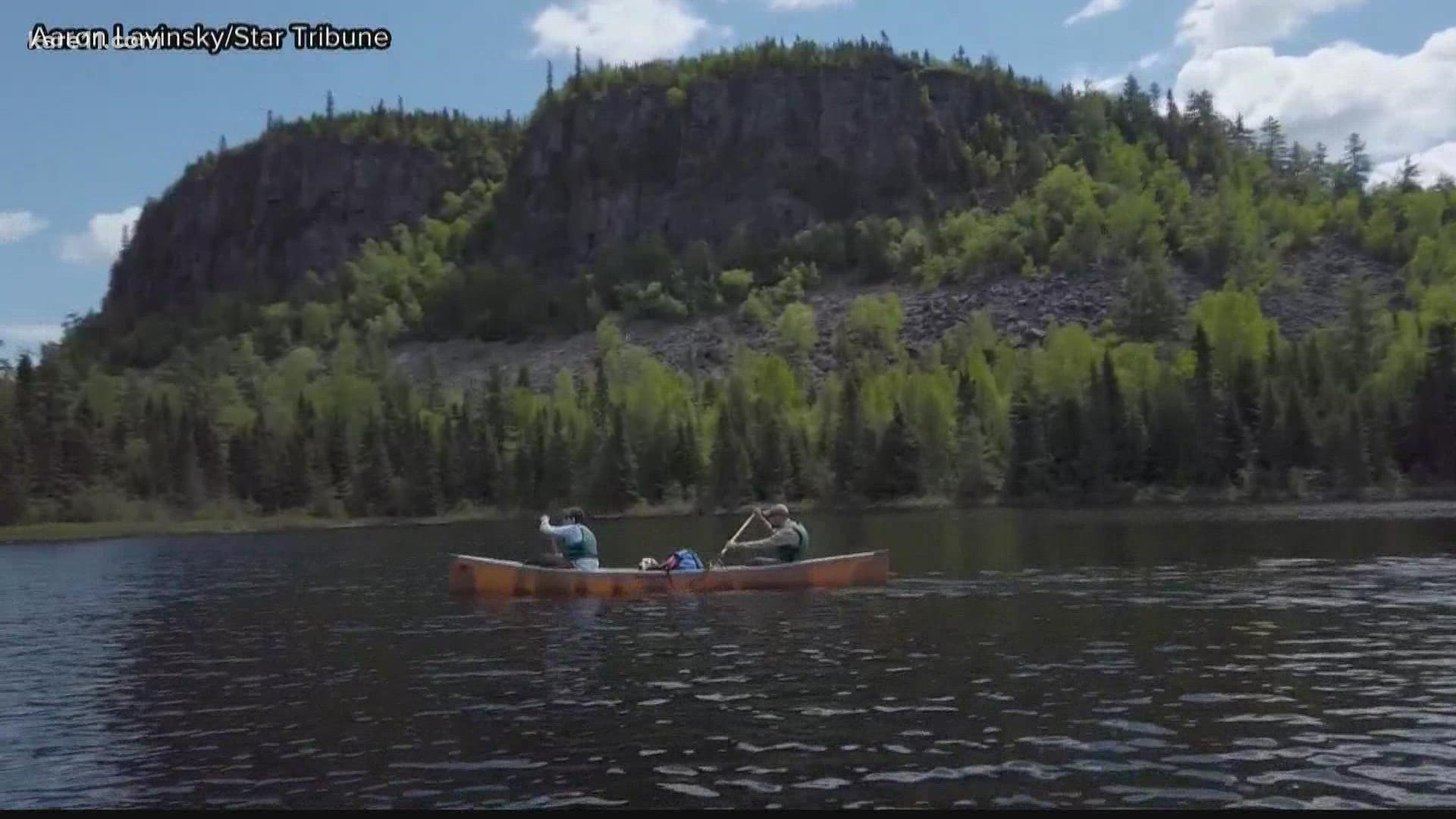MINNEAPOLIS — It may be cold now, but it's time to start planning if you want to vacation up north this summer — way up north.
The Forest Service is making changes to the Boundary Waters Canoe Area that will limit thousands of people from entering the popular wilderness.
For 15 years, Aaron Schmoll has paddled the pristine lakes inside the BWCA — a more than 1 million-acre wilderness in the Superior National Forest in northeastern Minnesota.
"It's a magical place and you're always finding something new to explore," said Schmoll, who launched his first canoe there when he was 17 years old. "It’s a feeling of vulnerability, but also of complete solitude and peace."
The number of visitors here started to spike in 2020, spurred by COVID-19 lockdowns. According to the Forest Service, there were 165,918 total annual visitors in 2020.
There were 143,140 in 2019.
With all the people also came a high amount of resource damage, that, according to the Forest Service, included "cutting of live trees, human waste not being properly disposed, trash left in campfire rings, illegal entry, food not properly stored, disruptive and oversized groups, lack of BWCA permits, improper food storage and campfires left unattended."
This year, the Forest Service will now limit the number of permits at different entry points by 5,700 throughout the season that runs from May to September.
"It's one permit per day over the span of four to five months, and it's potentially nine people per each permit," said Cassidy Ritter. "It starts adding up really quickly."
Ritter is a minority owner of Voyageur Canoe Outfitters off the Gunflint Trail. It has direct access to the two popular entry points known as Saganaga Lake and Seagull Lake, which will both see a reduction in permits this year.
"We want everybody who wants to go on a trip to be able to go on a trip," said Ritter. "So it's really hard for us to be like, 'Ok, well, try again,' or, 'Nope, try next year.'"
Ritter doesn't plan to raise her prices — yet. Instead, she recommends people plan even more months in advance, and like Schmoll, be flexible.
"I do have backups, and if something doesn't work out we'll just find a different route," said Schmoll. "I’m going to be on the website first thing trying to book them all in."
Meanwhile, the Forest Service says to have three different entry points and dates in mind.
The permits go on sale Wednesday, Jan. 26, and $16 for adults. You can click here as soon as registration opens to buy them.
To ensure visitors understand and follow all the rules, permit holders are also required to watch three Leave No Trace education videos prior to their trip.
"I think it’s more about the education that happens before people go on their trips," said Ritter.
While Schmoll says, "It reinforces that it's a gem of our state and that we all owe a responsibility to maintaining it."
Watch more local news:
Watch the latest local news from the Twin Cities in our YouTube playlist:

